
What is Solana and what makes Solana unique?
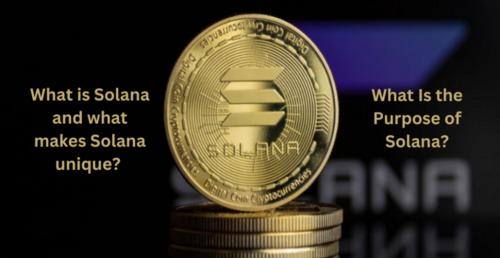
Solana is a platform for building and hosting decentralised applications (dApps) and smart contracts. It is similar to other smart contract platforms like Ethereum and Cardano, but Solana prioritises transaction speed.
The Solana network can process up to 50,000 transactions per second. For context, the Visa network processes about 1,700 transactions per second. Ethereum can handle about 15 per second, but the throughput is set to increase exponentially in future. Cardano can handle roughly 250 transactions per second.
Solana is an Ethereum-based Cryptocurrency project. And, like nearly every other cryptocurrency project, it claims faster transaction times and lower transaction fees.
The true value of Solana, though, may lie in its platform and community for developing Blockchain-based apps.
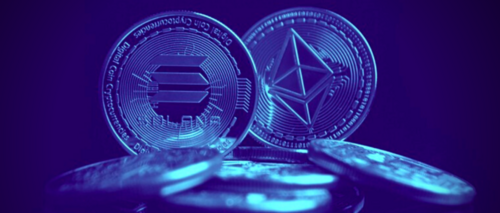
SOL is the native cryptocurrency of the Solana ecosystem and is used to pay for services carried out on its network. The cryptocurrency is also listed on a number of investment and trading platforms where investors can buy and sell the coin.
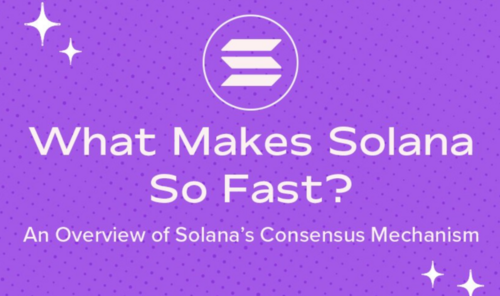
The Solana network is designed for speed, scale and keeping transaction costs to a minimum.
To accommodate huge transaction volumes, other networks like Bitcoin have had to add a second layer such as the Lightning Network, and Ethereum will soon split the network through a process called sharding. Solana is able to remove this added complexity by accommodating these volumes on its layer-1 blockchain.
This is because of Solana’s unique way of validating transactions, a method called proof-of-history (POH).
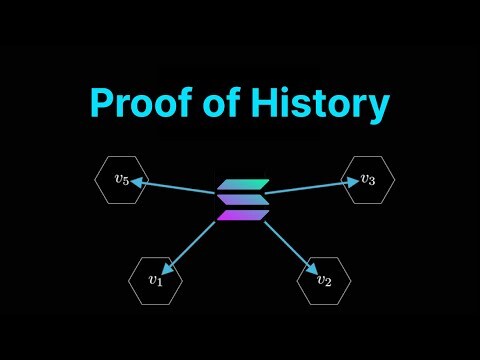
Many programmable blockchains like Ethereum have trouble determining the exact time at which a transaction was made, and have to rely on outside programmes to assign an accurate timestamp, adding another step in the process.
Proof-of-history solves this issue by way of a built-in mechanism that time-stamps the transactions on the network as they come in. It’s like a drive-through at a fast food chain. Your order is timestamped to ensure that each meal is processed in the correct sequence and everyone in line gets what they paid for when it’s their turn. Without the timestamp, employees would have to go around confirming each person’s order.
It positions the Solana network as a network built for scaling, but there is a downside to driving a blockchain at this speed.
This fast-paced nature of the Solana network has in the past led to a number of network outages, often due to denial-of-service attacks. The founder, Anatoly Yakovenko, has identified these outages as the network’s biggest challenge. You can find out more about this here.
That being said, what is Solana and how does it work? Consider the following.
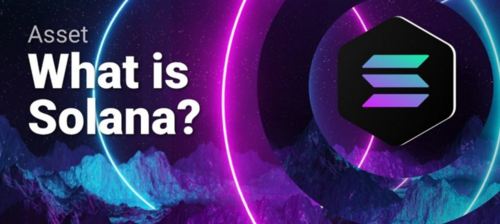
Yes, Solana does use cryptocurrency, namely the $SOL token. In terms of “Altcoins,” it’s quite strong.
While the crypto world is constantly changing, SOL is now one of the top twenty most traded coins on Coinbase. In May 2021, the currency achieved an all-time high of $56, before plummeting to $24 later that week. Since then, the currency has consistently traded above $25 (with little variation).
SOL is utilized for internal Solana blockchain transactions but can also be reinvested in the Solana platform in exchange for numerous boons.
.jpg)
Naturally, a portion of SOL’s success is attributable to the blockchain upon which it is constructed. SOL’s blockchain introduces several key advancements to the layer 1 protocol, obviating the need for layer 2 protocols entirely.
Solana bills itself as “Proof-of-History,” a novel approach to the consensus that defines the relative order of transactions—rather than needing validators to do it. This approach maintains security but gives developers and validators more flexibility.
What’s more, this technology enables the blockchain to operate efficiently regardless of network traffic. This distinguishes it from other protocols, which might become bottlenecked when network activity is either high or excessively low.
SOL also makes use of Cloudbreak. Along with a distributed ledger that keeps Solana honest, you can think of Cloudbreak as a distributed archive that prevents the transaction history from consuming an inordinate amount of computational space.
This also distinguishes the roles of a node as a validator and an archiver. As a result, while specialized miners will likely require more powerful computers, smaller systems can still contribute to the network by acting as archivers.
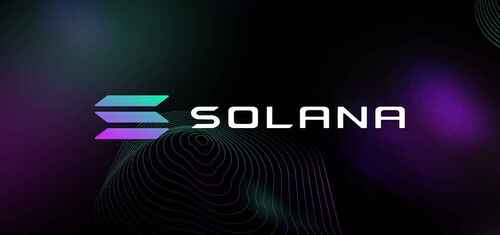
With the exception of Bitcoin, blockchains are often used for purposes other than transaction processing. So, what is SOL’s role?
Along with its blockchain and money, SOL offers a development platform for mobile applications. The platform is now compatible with the C and C+ programming languages, as well as Rust, with additional integrations planned.
The platform features “composable building elements” that simplify the process of developing apps that work and collaborate. That is, between themselves and the Solana blockchain, token, and ecosystem.
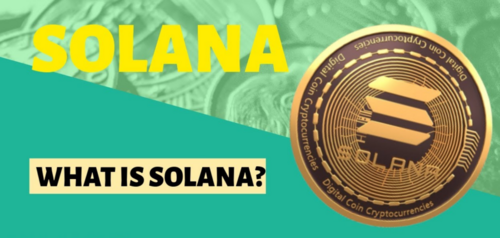
If you’ve ever been disappointed by an app purchase or a transaction within an app, you can see why Solana might become so crucial. By combining an app development platform with its blockchain and native digital currency, it hopes to increase the number of people who produce apps and to assist creators and users in avoiding difficult app stores.
Another issue that this may address is the microtransaction. Making in-app purchases can be a hassle due to the fact that they often demand credit card payments that exceed a particular monetary amount in order to be successful. Because Solana transactions are so inexpensive, they have the ability to fundamentally alter the game.
Solana-based games and applications may possibly contain robust player-to-player markets in the future, similar to those found in various online games and ecosystems today. Audius, a music streaming network built on the Solana blockchain, offers a more equitable remuneration mechanism for recording artists.
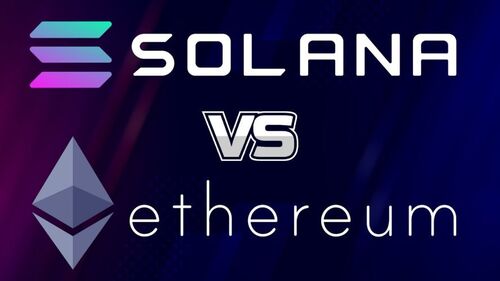
The cryptocurrency market is quite competitive. Numerous people in the space are questioning, “Can Solana dethrone Ethereum?” Solana and Ethereum are diametrically opposed projects. Both have distinct advantages, and there is no reason why one must “win.” Nonetheless, the Solana vs. Ethereum debate can be instructive.
As previously said, Solana is remarkable not for its cryptocurrency but for the capabilities of its blockchain. This places it in a comparable league to Ethereum. While Ether is a cryptocurrency, the Ethereum blockchain powers a slew of intriguing projects and is primarily responsible for popularizing smart contracts in their current form.
On Solana, smart contracts are conceivable, although the native tools are in their infancy. That is not to say they are unusable; rather, they are typically enabled by other apps such as Chainlink and Serum. On the other hand, apps can be simply produced on Solana due to the benefits and services that Ethereum lacks.
If SOL were simply a modular application development tool, that would be quite amazing. It would be quite fascinating if it were simply an efficient and scalable blockchain. By combining these factors, it may be on the verge of establishing its own app-based economy. That is the most thrilling aspect.
We’ll have to wait and see how it performs over the next few years, but its future appears to be very bright.
Always remember to make smart decisions and do your own research!
*We are not financial advisors. In order to make the best financial decision that suits your own needs, you must conduct your own research and seek the advice of a licensed financial advisor if necessary. Know that all investments involve some form of risk and there is no guarantee that you will be successful in making, saving, or investing money; nor is there any guarantee that you won't experience any loss when investing.
Buy, store, and manage your investments with confidence
Join Markethive - the only Market Network on Blockchain, click HERE
.jpg)
About: Andries vanTonder
Over 40 years selfemployed
He is a Serial Entrepreneur, an Enthusiastic supporter of Blockchain Technology and a Cryptocurrency Investor
Find me at my Markethive Profile Page | My Twitter Account | My Instagram Acount | and my Facebook Profile.

